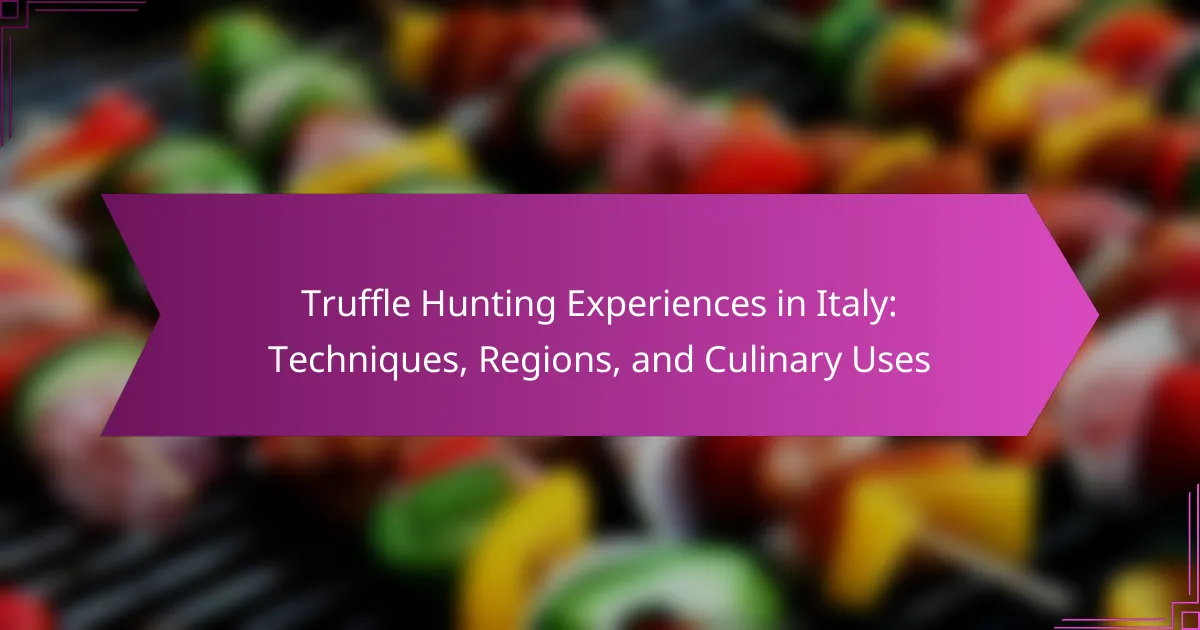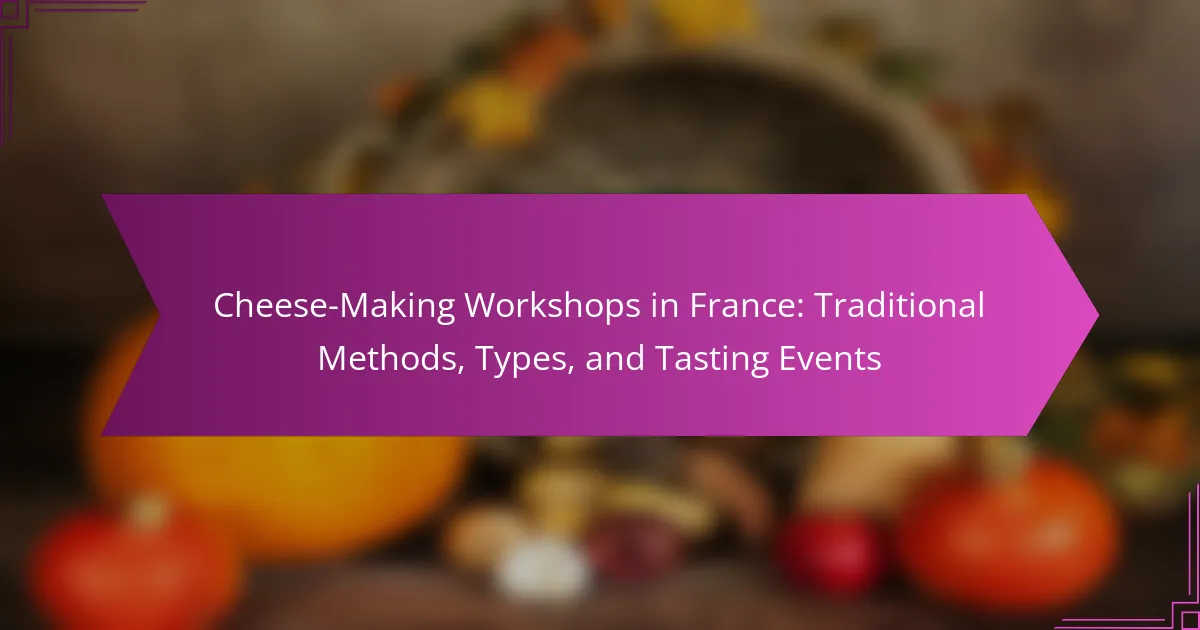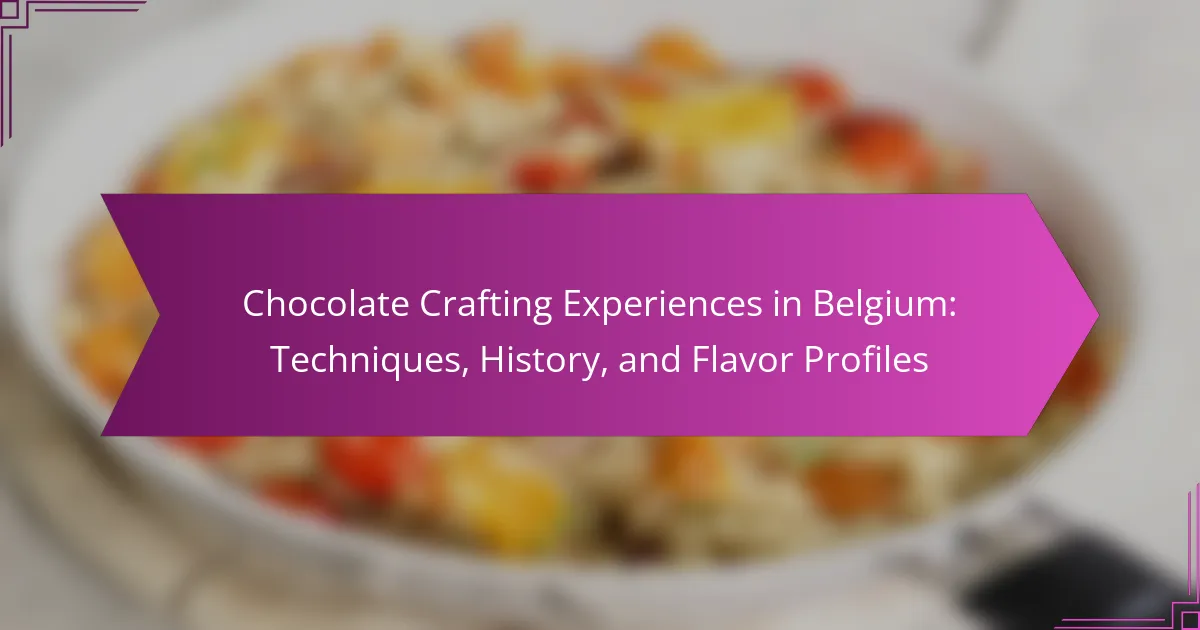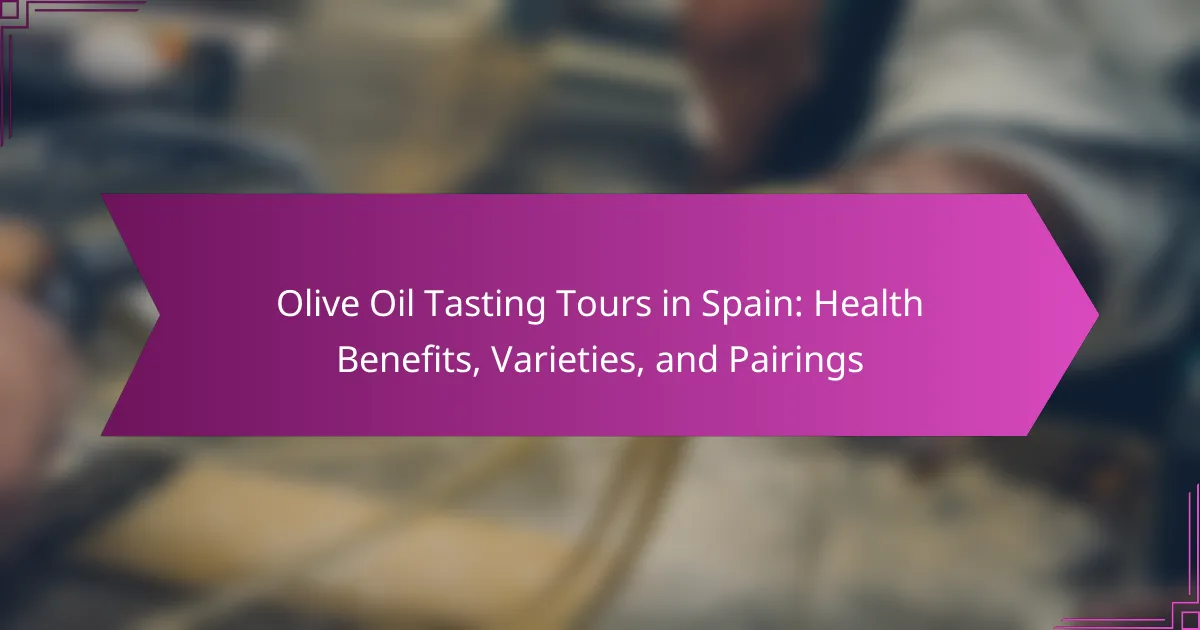Discover the rich tapestry of wine tours in Portugal, showcasing renowned regions like Douro Valley and Alentejo. Explore unique varietals such as Touriga Nacional and Alvarinho. Learn about ideal food pairings that elevate the tasting experience. Engage with sustainable practices and local cuisine for an immersive journey through Portugal’s wine heritage.
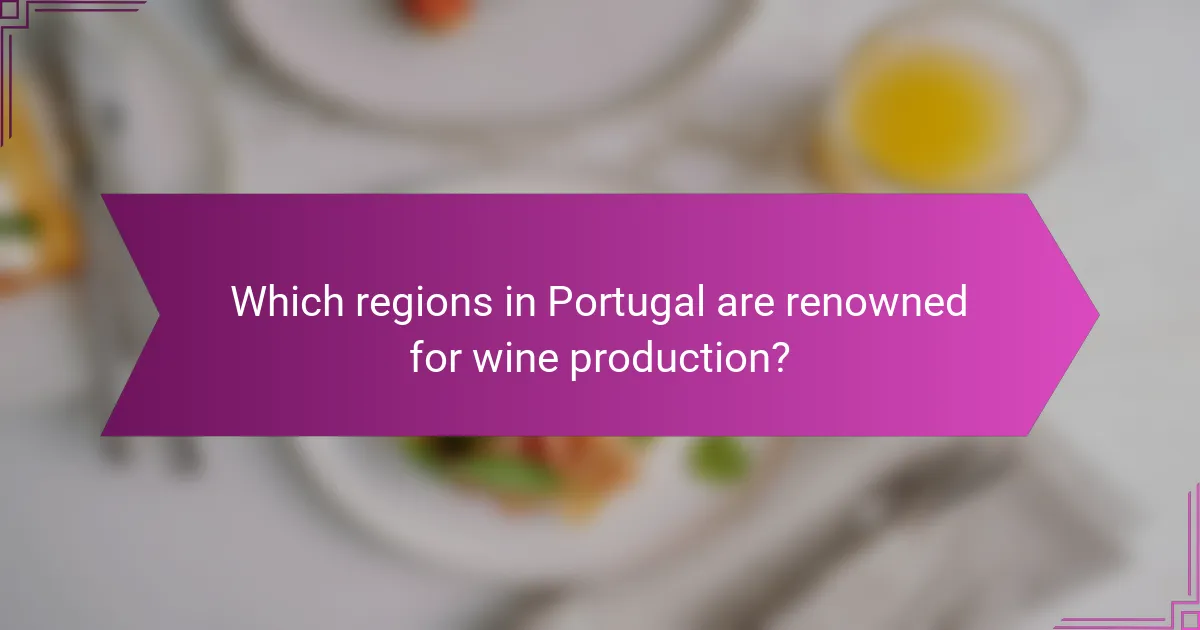
Which regions in Portugal are renowned for wine production?
The renowned regions for wine production in Portugal include the Douro Valley, Alentejo, and Dão. These areas are celebrated for their unique varietals and rich wine heritage. The Douro Valley is famous for Port wine, while Alentejo is known for its robust reds. Dão offers elegant wines with a focus on quality and terroir. Each region pairs beautifully with local cuisine, enhancing the overall tasting experience.
What are the key characteristics of the Douro Valley wines?
Douro Valley wines are characterized by their rich flavours, diverse varietals, and unique terroir. The region is renowned for its Port wines, particularly those made from indigenous grapes like Touriga Nacional and Tinta Roriz. The wines often exhibit bold fruit notes, balanced acidity, and complex aromas due to the valley’s steep, terraced vineyards and schist soils. Additionally, the climate plays a significant role, with hot summers and cool nights contributing to the wines’ distinctive profiles.
How does the Alentejo region influence wine varietals?
The Alentejo region significantly influences wine varietals by providing a unique climate and soil composition. Its hot summers and mild winters create ideal conditions for growing grapes like Aragonês and Trincadeira. The region’s diverse terroirs, including clay and limestone soils, impart distinct flavours to the wines. Additionally, traditional winemaking techniques enhance the character of Alentejo wines, making them rich and full-bodied. This combination of factors contributes to the unique attributes of wines from this region, setting them apart in Portugal’s wine landscape.
What makes the Vinho Verde region unique in wine tours?
The Vinho Verde region is unique for its refreshing wines, diverse varietals, and picturesque landscapes. Known for its light and crisp white wines, Vinho Verde offers a distinct taste profile, often featuring floral and citrus notes. The region’s unique climate, influenced by the Atlantic, allows for a wide range of grape varieties to thrive, including Alvarinho and Loureiro. Wine tours here often include local food pairings, such as seafood and traditional Portuguese dishes, enhancing the tasting experience. The vibrant culture and scenic vineyards further contribute to the allure of wine tours in this region.
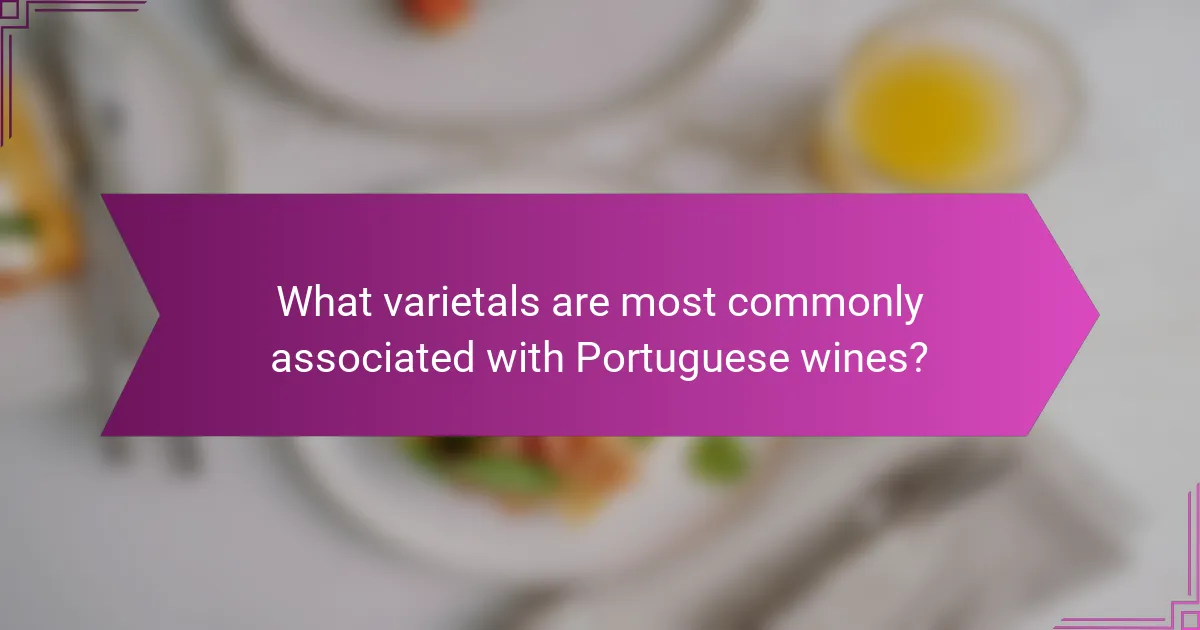
What varietals are most commonly associated with Portuguese wines?
The most commonly associated varietals with Portuguese wines include Touriga Nacional, Alvarinho, and Baga. These varietals reflect Portugal’s diverse wine regions and unique terroir. Touriga Nacional is known for its rich flavours and structure, while Alvarinho offers bright acidity and fruitiness. Baga, often used in red wines, is recognized for its tannic profile and aging potential.
Which red wine varietals are prominent in Portugal?
Prominent red wine varietals in Portugal include Touriga Nacional, Tinta Roriz, and Baga. These varietals are known for their rich flavours and complexity. Touriga Nacional is often considered the flagship grape, recognized for its dark fruit and floral notes. Tinta Roriz, also known as Tempranillo, offers berry flavours with spice. Baga is notable for its acidity and tannins, making it ideal for aging. Each varietal reflects the unique terroir of Portugal’s diverse wine regions.
What white wine varietals should be on your radar?
The white wine varietals to consider from Portugal include Vinho Verde, Alvarinho, and Arinto. These wines offer unique flavours and pair well with local cuisine. Vinho Verde is light and crisp, ideal for seafood. Alvarinho is aromatic and full-bodied, perfect with richer dishes. Arinto is known for its acidity, complementing a variety of foods.
How do local grape varieties enhance the wine experience?
Local grape varieties significantly enhance the wine experience by adding unique flavours and characteristics. Portugal’s diverse regions cultivate indigenous grapes, which reflect local terroir and traditions. For instance, the Alentejo region is known for its rich, full-bodied wines made from Aragonez, while the Douro Valley excels with its robust Port wines from Touriga Nacional. These varietals offer distinct tasting notes, enriching food pairings and elevating wine tours. As a result, exploring local grape varieties provides a deeper appreciation of Portugal’s wine heritage.
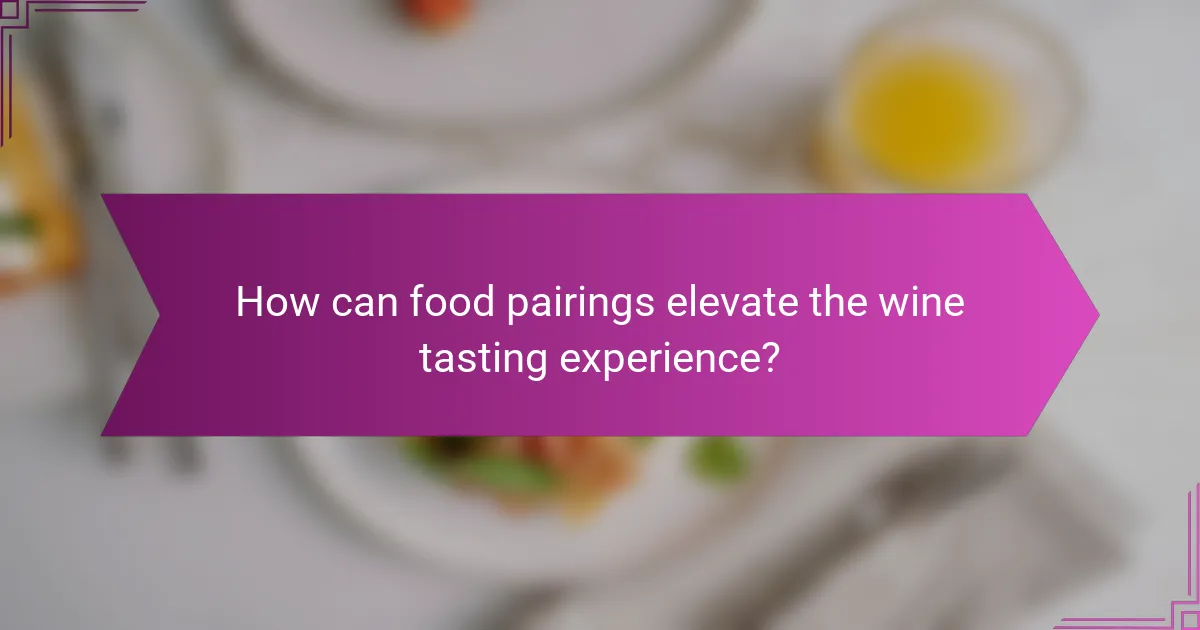
How can food pairings elevate the wine tasting experience?
Food pairings significantly enhance the wine tasting experience by complementing and elevating flavours. In Portugal, regional wines like Vinho Verde pair well with seafood, while richer reds from the Douro Valley match beautifully with hearty meats. These combinations not only highlight the unique attributes of each wine but also create a harmonious dining experience. Engaging with local cuisine during wine tours amplifies the sensory journey, making it memorable and enriching.
What traditional Portuguese dishes complement specific wines?
Traditional Portuguese dishes pair beautifully with specific wines, enhancing flavours and creating a memorable dining experience.
For example, the rich flavours of Bacalhau à Brás complement Vinho Verde, while the bold taste of Cozido à Portuguesa pairs well with robust Douro reds. Additionally, the delicate flavours of Caldo Verde are enhanced by a glass of Alentejo white wine.
These pairings highlight the unique attributes of both the dishes and the wines, showcasing the culinary diversity of Portugal.
Which cheeses pair best with Portuguese wines?
Cheeses that pair best with Portuguese wines include Azeitão, Queijo da Serra, and São Jorge. These cheeses enhance the flavours of regional varietals like Touriga Nacional and Alvarinho.
Azeitão, a creamy sheep’s cheese, complements the rich tannins of red wines. Queijo da Serra, with its strong flavour, pairs well with robust whites. São Jorge, a semi-hard cheese, balances the acidity in many Portuguese wines.
These pairings highlight the unique attributes of both the cheeses and the wines, creating a harmonious dining experience.
How do regional ingredients influence food and wine pairings?
Regional ingredients significantly enhance food and wine pairings in Portugal by complementing local varietals. Each region’s unique climate and soil influence the flavour profiles of both food and wine. For example, the rich, earthy flavours of Alentejo dishes pair well with robust red wines like Aragonez. Similarly, the seafood of the Douro Valley matches beautifully with the region’s crisp, white wines. Understanding these local ingredients helps create harmonious dining experiences that highlight Portugal’s diverse culinary landscape.
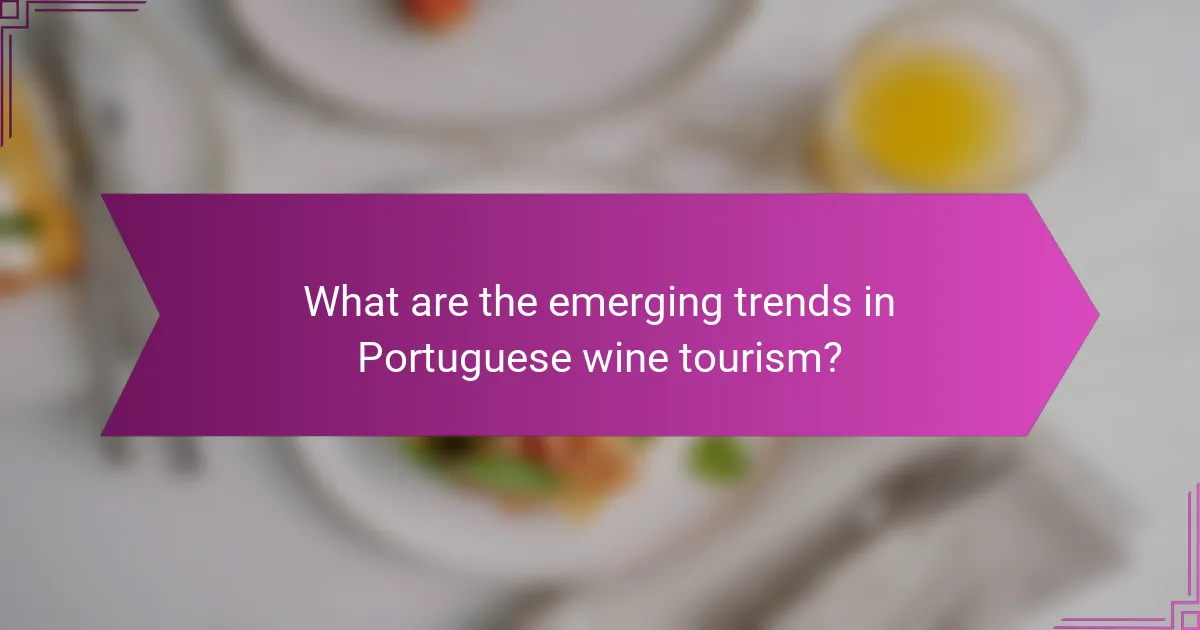
What are the emerging trends in Portuguese wine tourism?
Emerging trends in Portuguese wine tourism focus on sustainability, immersive experiences, and regional diversity. Travelers increasingly seek eco-friendly vineyards that prioritize organic practices. Customized wine tours allow visitors to engage with local winemakers, enhancing cultural appreciation. Additionally, food pairings featuring regional cuisine are becoming integral to wine tasting experiences, promoting the unique attributes of Portugal’s diverse wine regions.
How are sustainable practices shaping the future of wine tours?
Sustainable practices are increasingly shaping wine tours in Portugal by promoting eco-friendly vineyards and responsible tourism. Regions like Alentejo and Douro Valley focus on organic farming, enhancing biodiversity and soil health. Tourists enjoy unique varietals such as Touriga Nacional while experiencing food pairings that highlight local cuisine. Sustainable initiatives include waste reduction and energy efficiency, attracting environmentally conscious visitors. As a result, these practices not only preserve the landscape but also enhance the overall wine tour experience.
What role does technology play in enhancing wine experiences?
Technology significantly enhances wine experiences by providing immersive tools for exploration and education. Virtual reality tours allow users to experience vineyards in Portugal’s diverse regions, such as Douro Valley and Alentejo, from anywhere. Mobile apps offer detailed information on varietals, food pairings, and tasting notes, enhancing the connection to each wine. Additionally, augmented reality labels can provide interactive content, enriching the tasting experience. These innovations cater to both novice and expert wine enthusiasts, making wine culture more accessible and engaging.
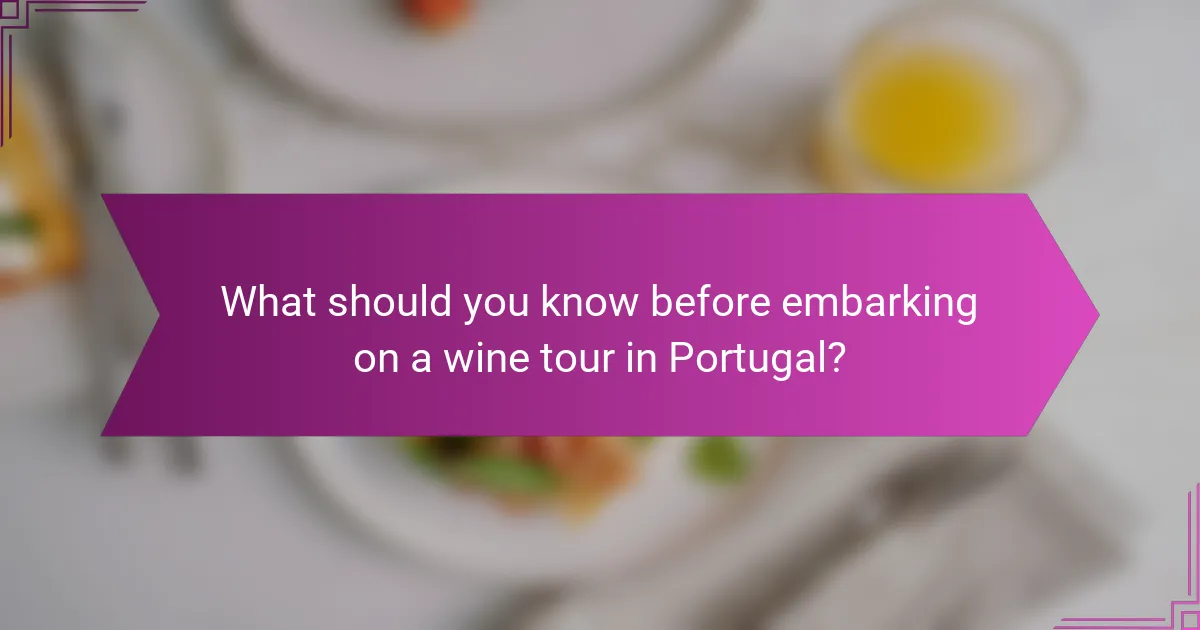
What should you know before embarking on a wine tour in Portugal?
Before embarking on a wine tour in Portugal, research the regions, varietals, and food pairings. Portugal boasts diverse wine regions like Douro Valley and Alentejo, each offering unique varietals such as Port and Vinho Verde. Pairing local cuisine enhances the tasting experience, making it essential to explore regional dishes alongside wines. Planning your itinerary around harvest seasons can also provide a richer experience.
How to choose the right wine tour for your preferences?
To choose the right wine tour in Portugal, consider your preferences for regions, varietals, and food pairings. Focus on the wine-producing areas like Douro Valley or Alentejo, known for distinct varietals such as Port or Alentejano wines. Evaluate tours that offer tastings paired with local cuisine to enhance your experience. Research tour operators for unique attributes like small group sizes or exclusive vineyard access.
What are common mistakes to avoid during wine tastings?
To enhance your wine tasting experience, avoid common mistakes like rushing through tastings, neglecting to cleanse your palate, and overlooking the importance of aroma. Focus on savoring each sip and engaging with the wine’s characteristics.
1. Rushing through tastings can lead to missing subtle flavours.
2. Failing to cleanse your palate between tastings can distort your perception.
3. Ignoring the aroma prevents a full appreciation of the wine’s complexity.
4. Not asking questions limits your learning about varietals and regions.
5. Overlooking food pairings can diminish the tasting experience.
Which tips can enhance your overall wine tour experience?
To enhance your overall wine tour experience in Portugal, focus on planning, local knowledge, and engagement. Start by researching the wine regions, such as Douro Valley and Alentejo, to understand their unique varietals. Engage with local winemakers to gain insights into production methods. Pair wines with regional foods, like grilled sardines with Vinho Verde, to elevate your tasting experience. Lastly, consider joining guided tours for expert guidance and access to exclusive vineyards.
